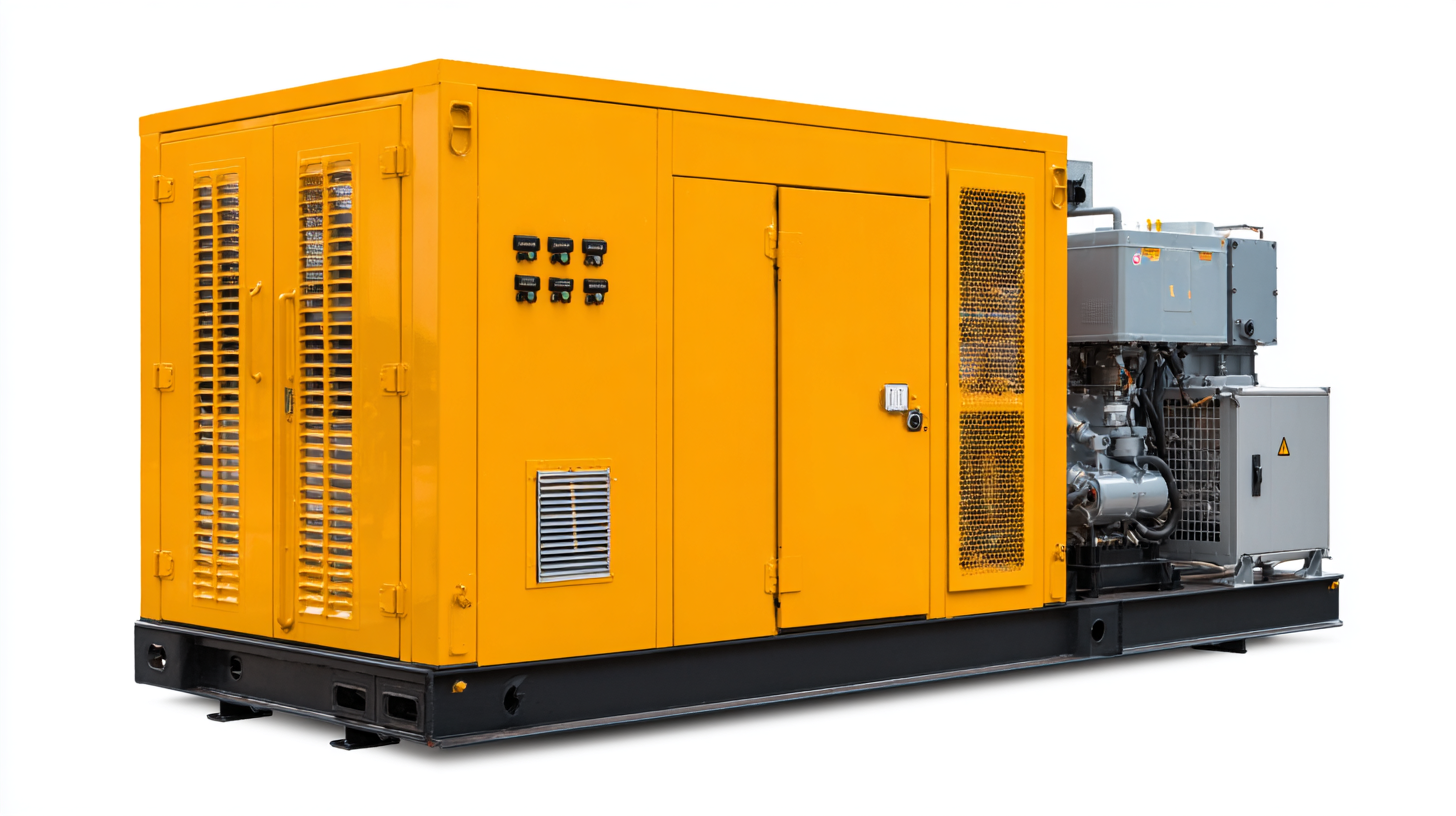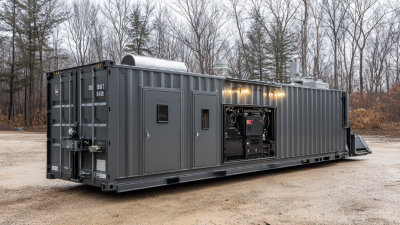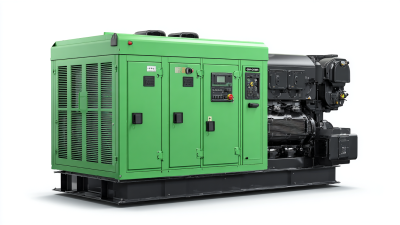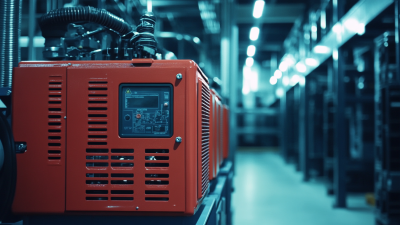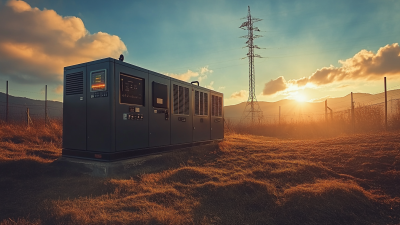
-
Home
-
Products
-
Service
-
About Us
-
Solution
-
Videos
-
News
-
Contact Us
Leave Your Message

In today's fast-paced business environment, having a reliable power source is crucial for operational continuity. The demand for electricity continues to rise, with reports indicating that industrial and commercial sectors are expected to increase their power consumption by approximately 3% annually over the next five years. For businesses looking to upgrade or install backup power solutions, selecting the right Generator 100 Kva is essential. This generator size is particularly favored for medium-sized enterprises, providing sufficient power to support essential equipment and machinery without overspending on capacity. By understanding key features, evaluating power requirements, and considering factors like fuel efficiency and noise levels, businesses can make informed decisions that align with their operational needs and budget constraints. Investing in the right generator not only ensures business resilience but also contributes to long-term savings and environmental sustainability.
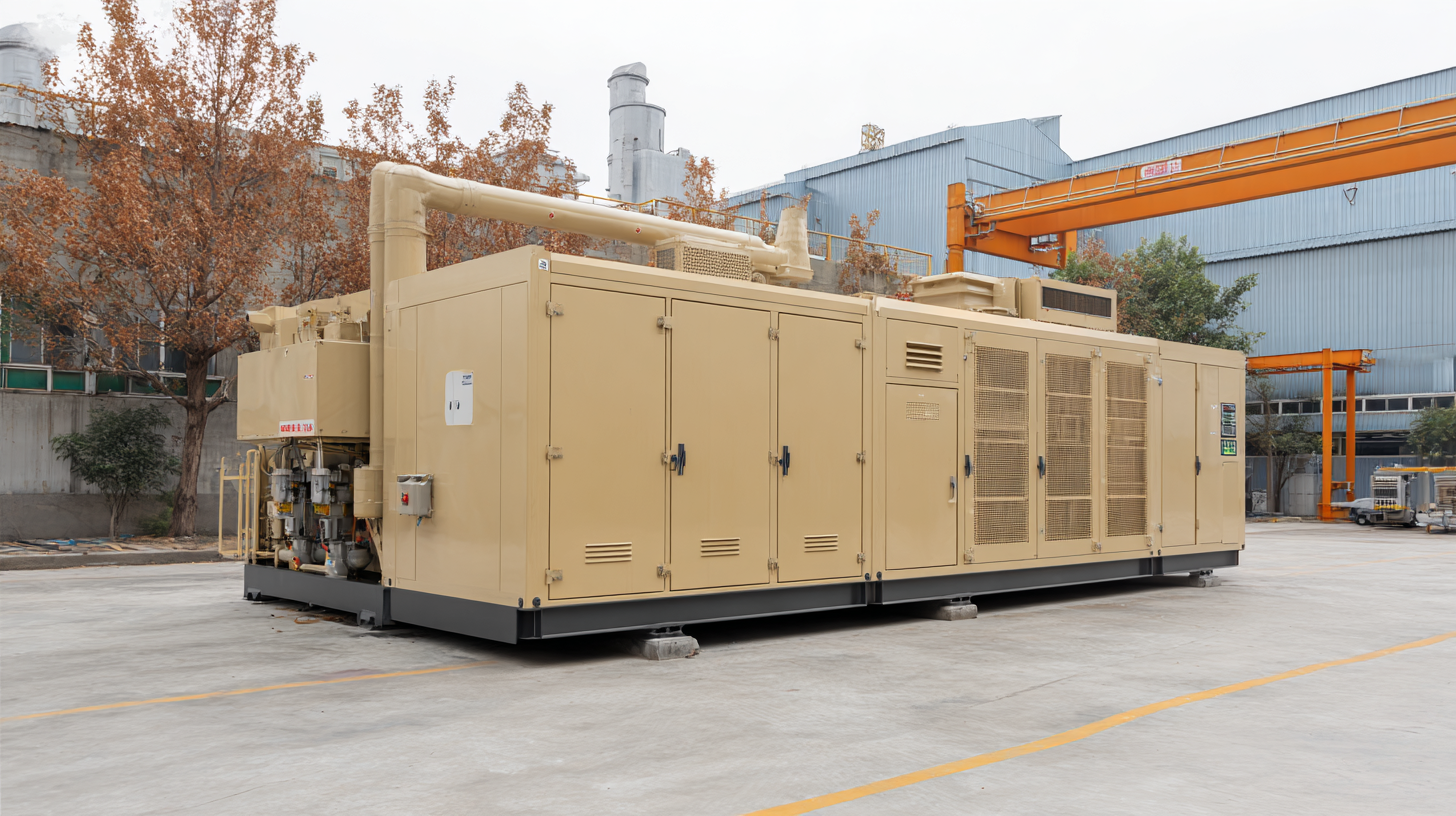
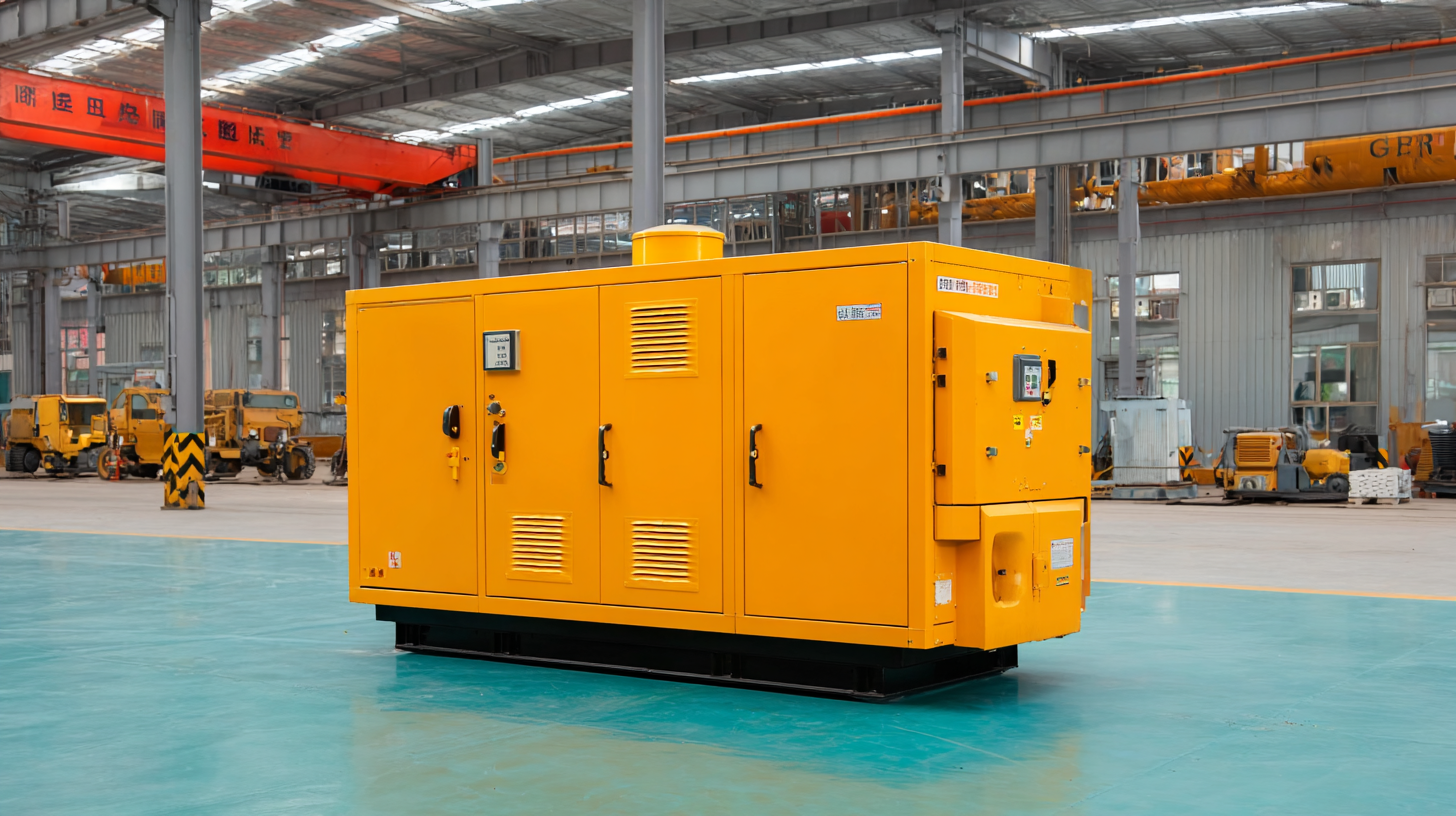 Choosing the right generator with a power rating of 100 kVA for your business needs involves a comprehensive understanding of your power requirements. First, assess the equipment and machinery that will be powered. Calculate the total wattage needed during peak operation, which includes continuous and starting power demands, as these often differ significantly. This analysis will help you avoid under- or over-sizing the generator, both of which can lead to inefficiencies and additional costs.
Choosing the right generator with a power rating of 100 kVA for your business needs involves a comprehensive understanding of your power requirements. First, assess the equipment and machinery that will be powered. Calculate the total wattage needed during peak operation, which includes continuous and starting power demands, as these often differ significantly. This analysis will help you avoid under- or over-sizing the generator, both of which can lead to inefficiencies and additional costs.
Tips:
Finally, reviewing the local market conditions and generator specifications is essential. Consider factors like fuel type (diesel or gas), maintenance requirements, and the generator's efficiency ratings. Making informed choices will not only safeguard your business operations but also optimize operational costs in the long run.
Tips:
When considering the choice between diesel and gasoline for a 100 KVA generator, several factors must be evaluated to determine which fuel type aligns best with the business's operational needs. Diesel generators are known for their durability and better fuel efficiency, often making them more suitable for continuous use in industrial settings. They also tend to have a lower cost per kilowatt-hour, which can lead to significant savings in the long run, especially for businesses requiring prolonged power supply.
On the other hand, gasoline generators typically provide a more silent operation and are easier to transport, making them ideal for portable applications. Gasoline is often more readily available and can be a more convenient option for businesses that do not require heavy power loads for extended periods. However, the trade-off often lies in the higher operational costs and potential emissions associated with gasoline use compared to diesel.
Ultimately, the decision should be guided by the specific energy demands of the business, cost considerations, and environmental impact, ensuring that the chosen generator not only meets current requirements but is also sustainable for future operations.
When choosing a 100 KVA generator for your business, analyzing load capacity is crucial to ensure that critical equipment operates efficiently and reliably. Start by identifying the total power requirements of the devices you plan to run simultaneously. This includes not only the wattage but also the starting currents of devices, which can be significantly higher than their running wattage. Calculating this accurately will help you avoid overloading the generator, which can lead to frequent malfunctions or premature wear.
Additionally, consider any future expansion of your operations. If you anticipate an increase in equipment or additional processes, it’s beneficial to select a generator with a slightly higher capacity. This foresight allows for flexibility and reliability in your power supply. Moreover, investigate the generator’s efficiency ratings and fuel consumption, as these factors will influence both operational costs and environmental impact. Ensuring adequate power for your critical equipment hinges on a thorough assessment of both current and future load requirements.
| Equipment Type | Power Requirement (kW) | Starting Load (kW) | Total Load (kW) | Load Percentage (%) |
|---|---|---|---|---|
| Lighting System | 10 | 15 | 15 | 15 |
| HVAC System | 25 | 30 | 30 | 30 |
| Computers & Servers | 15 | 20 | 20 | 20 |
| Refrigeration Units | 20 | 25 | 25 | 25 |
| Miscellaneous Equipment | 30 | 35 | 35 | 35 |
When selecting a 100 KVA generator for business use, noise levels and mobility are critical features to consider. Noise pollution can disrupt not only the work environment but also neighboring areas, making it essential to choose a generator designed for quieter operation. Many modern generators incorporate sound-dampening technology, allowing businesses to maintain a professional atmosphere. Furthermore, businesses located in urban settings may face specific regulations regarding permissible noise levels, thus reinforcing the importance of a quieter model.
Mobility is another key factor, especially for businesses that require generators to be relocated frequently, such as those in events or construction sites. Generators with wheels or lightweight designs enhance portability, allowing easy transport and setup. It’s also beneficial to consider whether a generator has user-friendly controls and maintenance access, as this can further improve operational efficiency in mobile applications. Prioritizing these features will help ensure that the chosen generator not only meets power requirements but also aligns with the specific operational needs of your business.
When selecting the right 100 Kva generator for your business,
understanding the total cost of ownership (TCO) is crucial.
TCO encompasses not only the initial investment needed to acquire the generator but also the long-term operating costs
associated with its maintenance, fuel, and repairs. Assessing these factors helps businesses make informed decisions
that align with their financial strategies and operational needs. A generator's efficiency and reliability can
significantly influence these costs, making it essential to analyze various models and brands available in the market.
Furthermore, as global energy demands rise, especially with the increasing energy requirements of data centers,
businesses must consider sustainable options in their power solutions.
The shift towards renewable energy sources may increase initial costs but can lead to substantial savings in operating
expenses over time. Companies should also account for potential future regulations and environmental considerations,
ensuring that their choice not only meets current power needs but also adheres to evolving standards
for sustainability and efficiency in the long run.
